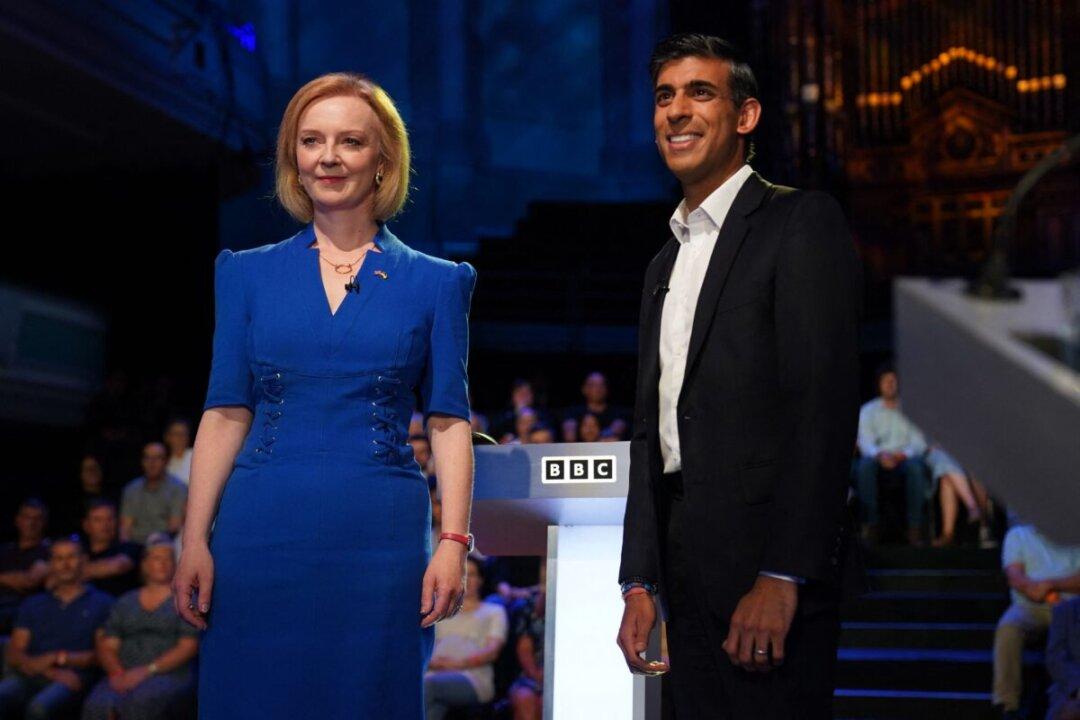Conservative Party members are voting for who will become their next leader and succeed Boris Johnson as prime minister, but what difference will it make if the government is led by Liz Truss or Rishi Sunak?
The Epoch Times spoke to Matthew Lesh, the head of public policy at the Institute for Economic Affairs, Stepan Stepanenko, a research fellow at the Henry Jackson Society, and Steve Keen, a distinguished research fellow at University College London, about the two candidates’ strengths and weaknesses, and their priorities when it comes to foreign policy.





